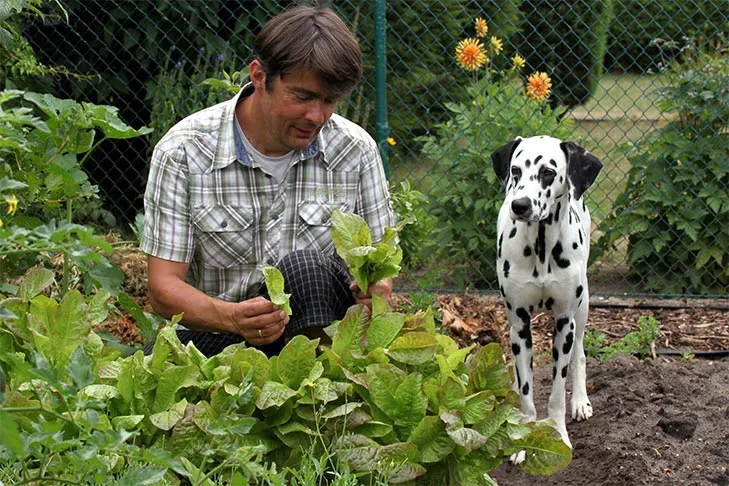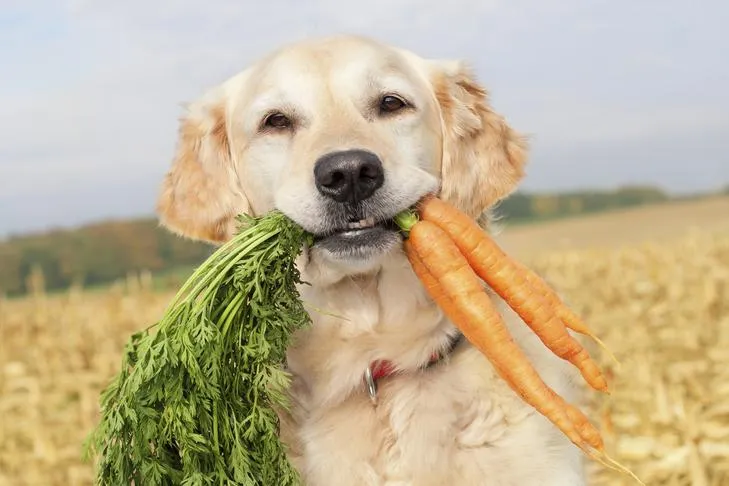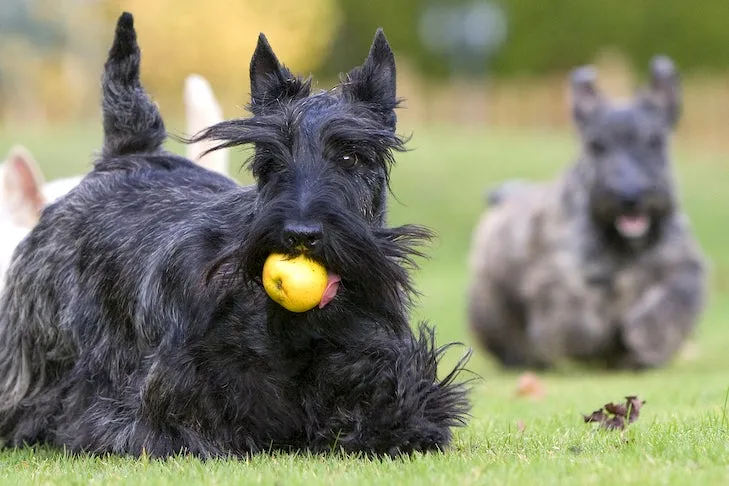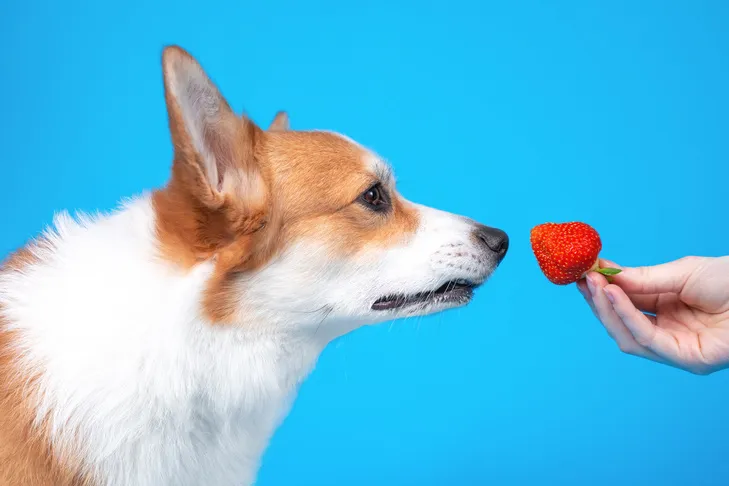As a loving pet parent, the desire to share your favorite snacks with your furry companion is natural. However, what’s safe and healthy for humans isn’t always the case for dogs. Our canine friends digest food differently, and feeding them the wrong human foods, especially certain vegetables, can lead to serious health problems, ranging from digestive upset to severe illness or even death. It’s crucial to understand which vegetables can harm your dog and which can be safely enjoyed in moderation.
While dogs are omnivores, they don’t strictly require fruits or vegetables in their diet. Their primary nutritional needs are met by a balanced dog food. Nevertheless, many dog-safe fruits and vegetables can serve as healthy, low-calorie treats or snacks, adding beneficial vitamins, minerals, and antioxidants to their diet. But the key is knowing the difference. This comprehensive guide will help you navigate the world of human foods, focusing on what vegetables dogs cannot eat, along with fruits and other vegetables that are safe when given appropriately. Understanding the distinctions between these categories is vital for your dog’s well-being and helps you ensure they only consume treats that contribute positively to their health. For more general information on what your canine companion should avoid, explore our guide on what human can dogs not eat.
The Dangers of Certain Human Foods for Dogs
The primary concern when sharing human food with dogs stems from their unique digestive systems and metabolic processes. What might be a nutritious snack for you could be a potent toxin for your dog. Components like persin in avocados, solanine in tomato plants, or compounds in the allium family (onions, garlic) can trigger adverse reactions ranging from mild gastrointestinal distress to life-threatening conditions. Understanding these specific dangers is the first step in protecting your pet. Always err on the side of caution and consult your veterinarian if you’re unsure about a particular food item.
Vegetables Dogs Should Never Eat
When considering what vegetables dogs cannot eat, several common household items pose significant risks. These vegetables contain compounds that are toxic or extremely difficult for a dog’s system to process, potentially leading to severe health issues.
Asparagus
While not inherently toxic, asparagus offers virtually no nutritional benefit to dogs. It’s tough to eat raw, and by the time it’s cooked to a soft, digestible consistency, most of its minimal nutrients are lost. There are far better and more beneficial vegetable options to share with your dog if you’re looking for a healthy treat. It’s simply not worth the effort or the potential digestive upset for such little gain.
Mushrooms
Wild mushrooms are a definitive no-go for dogs. Of the thousands of mushroom species worldwide, a significant number are highly poisonous and can cause severe illness, organ failure, or even death in dogs. If you suspect your dog has ingested a wild mushroom, seek immediate veterinary attention. While store-bought, washed mushrooms are generally considered safe for human consumption, it’s best to avoid feeding them to your dog unless specifically prepared and recommended by a vet, as the risks associated with misidentification or contamination are too high.
Onions
Onions, leeks, and chives belong to the Allium family and are highly toxic to most pets, especially dogs and cats. These plants contain compounds that can damage a dog’s red blood cells, leading to a condition called hemolytic anemia. Symptoms of onion poisoning include vomiting, diarrhea, stomach pain, nausea, and lethargy. Japanese breeds like Akitas and Shiba Inus are particularly susceptible, but all dogs are at risk. Always ensure that any foods containing onions, whether cooked or raw, are kept well out of your dog’s reach. This also applies to powdered onion in spices.
 Dalmatian watching a man gardening and picking leaves.
Dalmatian watching a man gardening and picking leaves.
Other Considerations: The Tomato Plant
While the ripe red flesh of a tomato fruit is generally considered safe for dogs, the green parts of the tomato plant—leaves, stems, and unripe fruit—contain a toxic substance called solanine. A dog would need to consume a relatively large amount of the plant material to become severely ill, but it’s best to avoid tomatoes altogether as a precaution. If you have a vegetable garden, ensure your dog doesn’t have access to your tomato plants.
Fruits Dogs Should Never Eat
Beyond vegetables, there are also several fruits that can be dangerous for dogs due to toxic compounds or potential choking hazards.
Avocado
Avocado, while a healthy fat source for humans, contains persin, a fungicidal toxin found in its pit, skin, and leaves. While the flesh has less persin, it can still be too much for dogs and often causes vomiting and diarrhea. The high-fat content of avocado flesh can also lead to gastrointestinal upset or, in larger quantities, contribute to conditions like pancreatitis in dogs. It’s best to keep avocados off your dog’s menu entirely, though some dog treats are formulated with avocado oil for skin and coat benefits, ensuring persin-free consumption.
Cherries
With the exception of the fleshy fruit around the seed, cherry plants contain cyanide and are toxic to dogs. Cyanide disrupts cellular oxygen transport, preventing your dog’s blood cells from getting enough oxygen. If your dog consumes whole cherries or cherry pits, watch for signs of cyanide poisoning, such as dilated pupils, difficulty breathing, and red gums, which constitute a veterinary emergency. Always safely discard cherry pits in a dog-proof trash receptacle, and educate children not to share cherries or their pits with your dog.
Grapes
Grapes and raisins are highly toxic to dogs, regardless of breed, sex, or age. Ingesting even a small amount can lead to acute kidney failure. If you suspect your dog has eaten grapes or raisins, contact your veterinarian immediately. Be vigilant about keeping these fruits out of your dog’s reach, especially in households with children who might drop them. When disposing of grapes or raisins, ensure they are in a secure, dog-proof trash can or compost system.
 Rottweiler laying down in the yard, its head tilted.
Rottweiler laying down in the yard, its head tilted.
Safe Vegetables for Your Dog (in Moderation)
Fortunately, many vegetables can be a healthy and enjoyable addition to your dog’s diet when prepared correctly and given in moderation. These vegetables offer various vitamins, minerals, and fiber, contributing to overall well-being. Knowing what human food can you feed dogs is just as important as knowing what to avoid.
Broccoli
Broccoli is safe for dogs in small quantities and best served as an occasional treat. It’s rich in fiber and vitamin C and low in fat. However, broccoli florets contain isothiocyanates, which can cause mild to severe gastric irritation in some dogs. The tough stalks have also been known to cause esophageal obstruction. To minimize risks, offer cooked broccoli and in small pieces.
Brussels Sprouts
Packed with nutrients and antioxidants, Brussels sprouts are beneficial for both humans and dogs. However, moderation is key; overfeeding them can lead to excessive gas. If your dog enjoys them, consider dehydrated dog foods that include Brussels sprouts as a component for a balanced intake.
Carrots
Carrots are an excellent low-calorie snack, high in fiber and beta-carotene (which converts to vitamin A). Their crunchy texture also helps clean your dog’s teeth. Carrots are a common ingredient in many dog foods and treats, making them a widely accepted and beneficial option.
 Golden Retriever holding carrots.
Golden Retriever holding carrots.
Celery
Beyond vitamins A, B, and C, celery contains nutrients that support heart health and may even help fight cancer. An added bonus: celery is known to help freshen doggy breath. Many dog chews also incorporate celery for these very benefits.
Green Beans
Whether chopped, steamed, raw, or canned (plain, no-salt added), green beans are safe for dogs. They are rich in essential vitamins and minerals, high in fiber, and low in calories, making them an ideal healthy snack or food topper. Frozen green beans can also offer a fun, enriching treat.
Peas
Green peas, snow peas, sugar snap peas, and garden or English peas are all acceptable for dogs occasionally. They provide several vitamins, minerals, protein, and fiber. You can offer fresh or frozen peas, but always avoid canned peas with added sodium to prevent unhealthy salt intake.
Spinach
Dogs can eat spinach, but it’s not the most recommended vegetable due to its high oxalic acid content. Oxalic acid can interfere with calcium absorption and potentially lead to kidney damage if consumed in very large quantities over time. While a small amount is unlikely to cause harm, it might be safer to opt for other vegetables. If you wish to provide the benefits of spinach, spinach-infused dog treats can be a safer, occasional option.
Safe Fruits for Your Dog (in Moderation)
Many fruits offer a sweet, healthy treat alternative for dogs, providing essential vitamins, minerals, and antioxidants. These should always be given in moderation due to their natural sugar content. Knowing what are good foods for dogs to eat helps diversify their treat options.
Apples
Apples are a great source of vitamins A and C, plus fiber. They are low in protein and fat, making them an excellent snack for senior dogs. Always remove seeds and the core, as apple seeds contain small amounts of cyanide. Frozen apple slices can be a refreshing treat.
 Scottish Terriers playing in the grass.
Scottish Terriers playing in the grass.
Bananas
In moderation, bananas are a fantastic low-calorie treat. They are rich in potassium, vitamins, biotin, fiber, and copper, and low in cholesterol and sodium. However, due to their high sugar content, bananas should be an occasional treat, not a dietary staple.
Blueberries
Often called a superfood, blueberries are packed with antioxidants, fiber, and phytochemicals that benefit both humans and canines. They make excellent training treats, and many dog treats feature blueberries for their nutritional punch.
Cantaloupe
Cantaloupe is nutrient-dense, low in calories, and a good source of water and fiber. Its high sugar content means it should be given in moderation, especially for overweight dogs or those with diabetes. Freezing cubes provides a refreshing summertime snack.
Cranberries
Both fresh and dried cranberries are safe in small quantities, though their tartness might not appeal to all dogs. Moderation is important to prevent an upset stomach. Avoid sweetened dried cranberries and opt for unsweetened fresh or frozen varieties, or cranberry-flavored dog treats.
Cucumbers
Cucumbers are particularly beneficial for overweight dogs due to their low carbohydrate and fat content and high water content, promoting hydration and satiety. They also provide vitamins K, C, and B1, potassium, copper, magnesium, and biotin. Frozen slices offer a cool, crunchy treat.
 Dog with cucumber slices.
Dog with cucumber slices.
Mango
This sweet tropical fruit is a good source of vitamins A, B6, C, and E, as well as potassium, beta-carotene, and alpha-carotene. Always remove the hard pit first, as it contains small amounts of cyanide and is a choking hazard. Mango’s high sugar content means it should be an occasional treat.
Oranges
Veterinarians confirm oranges are safe for dogs, though their strong citrus smell and taste may deter some. They are an excellent source of vitamin C, potassium, and fiber. Only offer the juicy flesh in small quantities, and always remove the peel and seeds, as the peel is tough on their digestive systems.
Peaches
Small amounts of fresh or frozen peaches (with the pit completely removed) offer fiber and vitamin A. Like cherries, peach pits contain cyanide. Discard pits safely. Avoid canned peaches due to their high sugar syrup content. Frozen peach slices make a fun summer treat.
 Siberian Husky puppy being held up in front of an apple tree.
Siberian Husky puppy being held up in front of an apple tree.
Pears
Pears are a good snack, high in copper, vitamins C and K, and fiber. Cut the flesh into bite-sized chunks and remove the pit and seeds, which contain traces of cyanide. Avoid sugary canned or jarred pears. You can also find pear-flavored dog treats.
Pineapple
A few chunks of pineapple can be a sweet treat, provided the prickly peel and crown are removed. This tropical fruit is full of vitamins, minerals, and fiber, and contains bromelain, an enzyme that aids protein absorption. Avoid canned pineapple in syrup due to added sugars.
Pumpkin
Pure pumpkin puree (100% pumpkin, not pie filling) is a healthy food known for its antioxidants and its ability to relieve both diarrhea and constipation in dogs. You can roast pumpkin yourself or buy plain canned pumpkin. Many pumpkin supplements and treats are also available.
Raspberries
Raspberries are safe in moderation and contain beneficial antioxidants. They are low in sugar and calories but high in fiber, manganese, and vitamin C. They are particularly good for senior dogs due to their anti-inflammatory properties that can help aging joints. Due to small, naturally occurring amounts of xylitol, limit your dog to no more than 8 ounces of fresh or frozen raspberries.
Strawberries
Strawberries are rich in fiber and vitamin C, and contain an enzyme that can help whiten your dog’s teeth. Like all fruits, they contain natural sugar, so offer them in moderation. Frozen strawberries are a fun enrichment treat.
 Pembroke Welsh Corgi sniffing at a strawberry on a blue background.
Pembroke Welsh Corgi sniffing at a strawberry on a blue background.
Watermelon
Dogs can eat watermelon, but always remove the rind and seeds first, as they can cause intestinal blockage. The flesh is safe, packed with vitamins A, B-6, and C, and potassium. Being 92% water, it’s excellent for hydrating dogs on hot days. Frozen, seeded chunks make a great hot-weather treat. If you’re looking for more general guidance on healthy options, consider exploring what is best for dogs to eat and [what foods are good to feed your dog](https://dogcarestory.com/what foods are good to feed your dog/) for a balanced approach to your pet’s diet.
Conclusion
Understanding What Vegetables Can Dogs Not Eat, along with other dangerous human foods, is a fundamental aspect of responsible pet ownership. While many fruits and vegetables offer healthy, enriching treats for your canine companion, others pose serious health risks. Always prioritize your dog’s safety by avoiding known toxic foods and preparing safe options appropriately. When in doubt, it’s always best to consult your veterinarian before introducing any new human food into your dog’s diet. By staying informed and making careful choices, you can ensure your beloved pet enjoys a healthy, happy life free from preventable food-related illnesses. Continue to explore our site for more valuable insights into dog care and nutrition.
